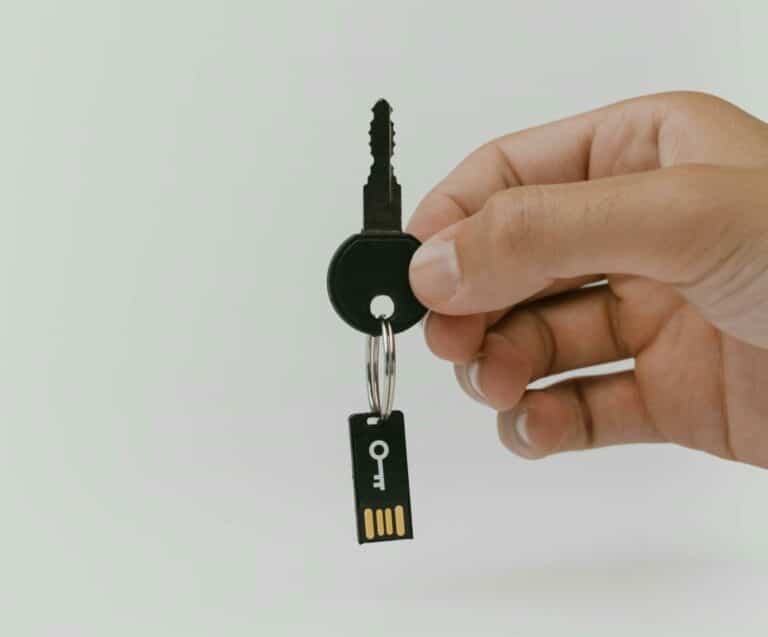Have you ever wondered how modern car keys have evolved from simple mechanical devices to advanced electronic systems? One such innovation is the transponder key, which has revolutionized automotive security.
A transponder key, also known as a “chip key,” is a type of car key that uses advanced radio frequency identification (RFID) technology. Unlike traditional keys, which only mechanically unlock car doors and start the engine, transponder keys provide an additional layer of security. They rely on a microchip embedded within the key to communicate with the car’s ignition system.
In this article, we will demystify the following;
- The Functionality Of A Transponder Key
- How Does A Transponder Key Work?
- The Components Of A Transponder Key System
- The Benefits Of Using A Transponder Key
- Common Misconceptions About Transponder Key
- Transponder Key Programming
- How To Replace A Transponder Key
The Functionality of a Transponder Key
Transponder keys work by transmitting a unique identification code to the car’s immobilizer system. The car’s engine control unit (ECU) compares this code with the one stored in it. If the codes match, the car’s ECU allows the engine to start. Therefore, if the codes do not match, the immobilizer system prevents the engine from starting, effectively deterring unauthorized access to the vehicle.
How Does a Transponder Key Work?
Now that we understand the basic functionality of a transponder key, let’s delve deeper into how it works. When you insert a transponder key into your car’s ignition, the key and the immobilizer system initiate a “handshake” process. During this process, the key’s microchip emits a low-power radio frequency signal that is received by an antenna located around the ignition cylinder.
The antenna in turn sends the signal to the immobilizer system’s control unit. The control unit then decodes the signal and compares it with the stored code in the ECU. If the codes match, the control unit sends a signal to the ECU, allowing the engine to start. If the codes do not match, the control unit blocks the engine from starting.
The Components of a Transponder Key System
A transponder key system consists of three main components: the key itself, the car’s immobilizer system, and the engine control unit (ECU). The key contains a microchip, an antenna, and a battery. The immobilizer system comprises an antenna, a control unit, and a receiver. The ECU, on the other hand, is responsible for controlling various aspects of the car’s engine, including starting and shutting off the engine.
The Benefits of Using a Transponder Key
Using a transponder key, you enjoy enhanced security as one of its key benefits. The unique code transmitted by the microchip makes it extremely difficult for thieves to hot-wire or bypass the car’s ignition system. Additionally, transponder keys provide convenience, as they can be programmed to unlock and lock the car’s doors remotely. This eliminates the need for traditional keys and offers an added layer of convenience for car owners.
Common Misconceptions About Transponder Keys
There are several misconceptions surrounding transponder keys that need to be addressed. One common misconception is that transponder keys are immune to theft. While it is true that transponder keys provide a higher level of security, determined thieves can still find ways to steal cars equipped with transponder key systems. It is important to remain vigilant and take additional security measures to protect your vehicle.
Another misconception is that transponder keys can only be obtained from car dealerships. While dealerships can provide transponder key replacement services, there are also independent locksmiths who specialize in transponder key programming and replacement. These locksmiths often offer more affordable and convenient alternatives to dealership services.
Transponder Key Programming
Transponder keys, like any other electronic device, require programming. When manufacturing a transponder key for the first time, the key is programmed with a unique code that is later registered with the car’s immobilizer system. To replace a transponder key, it needs to be programmed to match the car’s immobilizer system. A locksmith or a dealership can perform this programming process using specialized equipment.
How to Replace a Transponder Key
If you find yourself in a situation where you need to replace a transponder key, there are a few steps you can take. First, contact a reputable locksmith or car dealership that specializes in transponder key programming. Provide them with the necessary information about your vehicle, such as the make, model, and year. They will then guide you through the process of obtaining a new transponder key and programming it to work with your car’s immobilizer system.
Conclusion
Transponder keys have revolutionized automotive security by incorporating advanced RFID technology into car key systems. Understanding how transponder keys work and their components is essential for car owners looking to enhance their vehicle’s security. By demystifying the functioning of transponder keys, we can appreciate the benefits they offer and make informed decisions when it comes to replacing or programming these advanced car keys.
Frequently Asked Questions
1. Can transponder keys be duplicated?
Transponder keys can be duplicated, but the process is more complex than duplicating traditional keys. It requires specialized equipment and knowledge to program the duplicated key to work with the car’s immobilizer system.
2. Are transponder keys more expensive than traditional keys?
Transponder keys are generally more expensive than traditional keys due to the advanced technology and programming required. However, the added security and convenience they provide make them a worthwhile investment for many car owners.
3. Can a transponder key be reprogrammed?
Yes, transponder keys can be reprogrammed if the need arises. Whether it is due to a lost key or if you want to add a spare key, a locksmith or dealership can reprogram the transponder key to work with your car’s immobilizer system.
4. Are all cars equipped with transponder key systems?
Not all cars are equipped with transponder key systems. The use of transponder keys became more prevalent in the late 1990s and early 2000s, so older cars may not have this advanced security feature. It is best to check your vehicle’s specifications or consult a professional to determine if your car has a transponder key system.
5. Can I program a transponder key myself?
Programming a transponder key yourself can be challenging, as it requires specialized equipment and knowledge. You should seek the assistance of a professional locksmith or car dealership to ensure proper programming and functionality.


